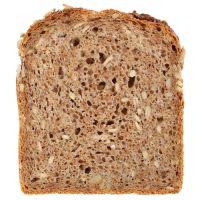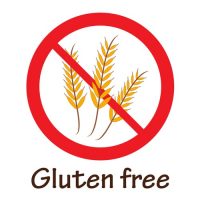
New Evidence That a Wheat-Free and Gluten-Free Diet Is Beneficial
Now, a new study shows another group of proteins in wheat may play a role in non-celiac gluten sensitivity and inflammation. Find out more.
gluten

Now, a new study shows another group of proteins in wheat may play a role in non-celiac gluten sensitivity and inflammation. Find out more.

More and more people are following a gluten-free diet these days, some out of necessity. Yet there’s another condition that many people confuse with gluten intolerance – wheat allergy. This article discusses wheat allergies and how they differ from gluten intolerance and celiac disease.

Autoimmune diseases are on the rise. Could diet play a role in why such problems as autoimmune thyroid disease are becoming more common? Find out whether what types of foods are now being linked with autoimmune disorders.

Can a gluten-free diet make you a better athlete? That’s why some athletes believe – but is this backed by science? Read on and find out whether there’s a connection between dietary gluten and exercise performance.

You often hear people say that whole grain foods are unhealthy and should be avoided. Is there any truth to this idea? Find out what research shows about whole grains – the dietary components they offer and whether they have health benefits. You might be surprised.

A gluten-free diet is all the rage right now. A number of people are convinced their digestive issues and lack of energy come from consuming gluten, but is gluten sensitivity as common as people think? See what research shows about the prevalence of gluten sensitivity and when it’s not so smart to go gluten-free.

Have you gone gluten-free because you think you’re gluten sensitive? It may not be the gluten after all. You may actually be sensitive to other compounds in gluten-containing foods called FODMAPs. Find out what FODMAPs are and how they cause problems.

One of the most frustrating things about food labeling in the United States is that words like “free” don’t mean to the FDA (Food and Drug Administration) what they mean to the average person. Consider, for instance, the term “fat free.” In common parlance, that would mean the food is 100% devoid of fat. To the FDA, however, a product need only contain less than 0.5 mg of fat per serving to be considered fat free. As annoying as this practice is for those on a diet, ambiguous labeling can be downright dangerous for people with food allergies or sensitivities.

For many people with allergies, avoiding the food they are allergic to is pretty simple. All they have to do is look at the ingredient list and make sure it’s not one of the foods listed. Unfortunately, if you have gluten sensitivity, it’s not always that simple. Instead of looking for foods that contain “gluten” in the ingredient list, you must be on the lookout for ingredients that contain the problematic protein. To make your gluten-free diet easier to follow, be on the lookout for these frequent hiding places of gluten.

Are you convinced that you’re sensitive to gluten and would benefit from a gluten-free diet? Many people think they feel better on a gluten-free diet but have never been formally diagnosed. Is there a test you can take to find out if you’re sensitive to gluten? Find out how gluten-sensitivity is diagnosed and how it differs from celiac disease.

Thinking that gluten-free diets are bland is a common misconception. Fortunately, nowadays there are multiple options to face the gluten-free challenge.